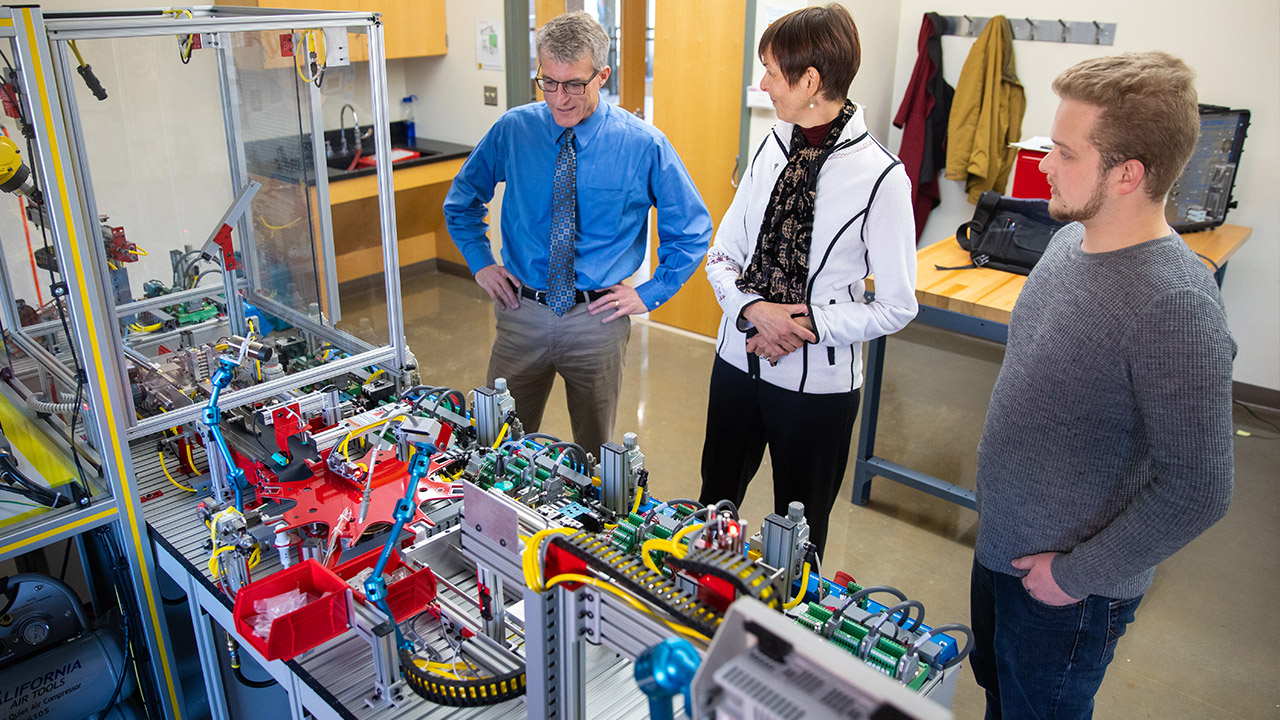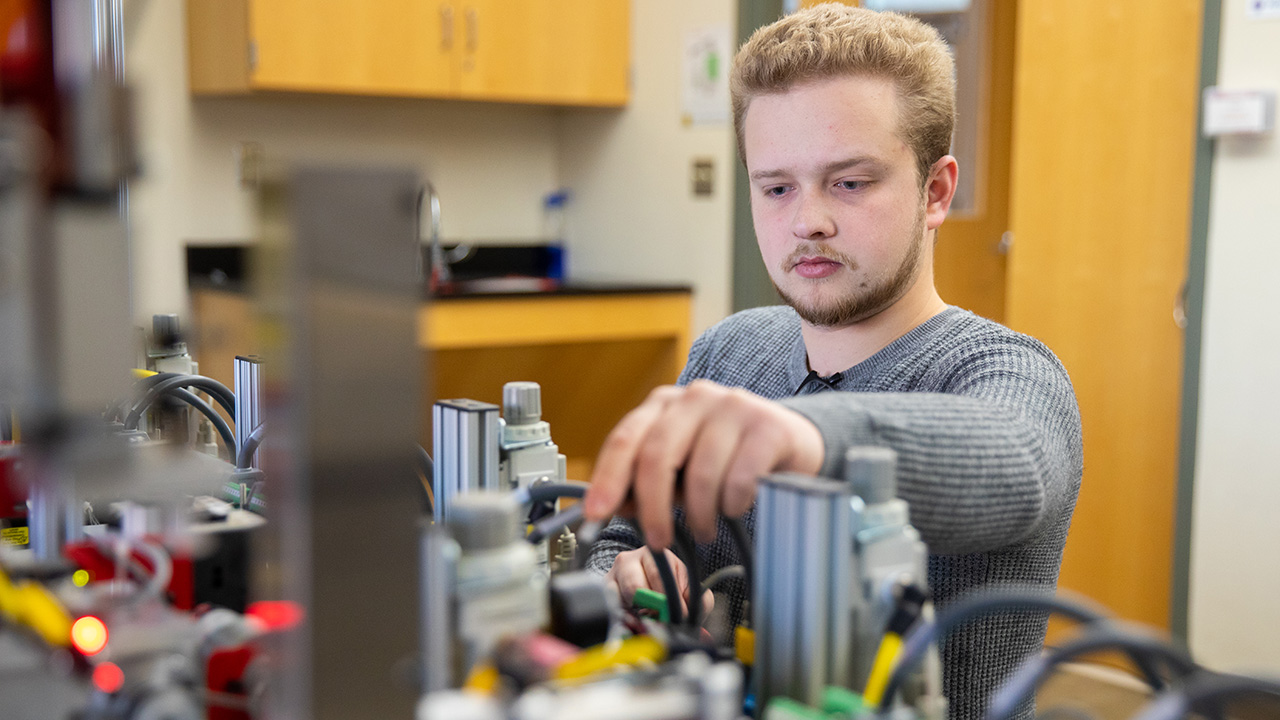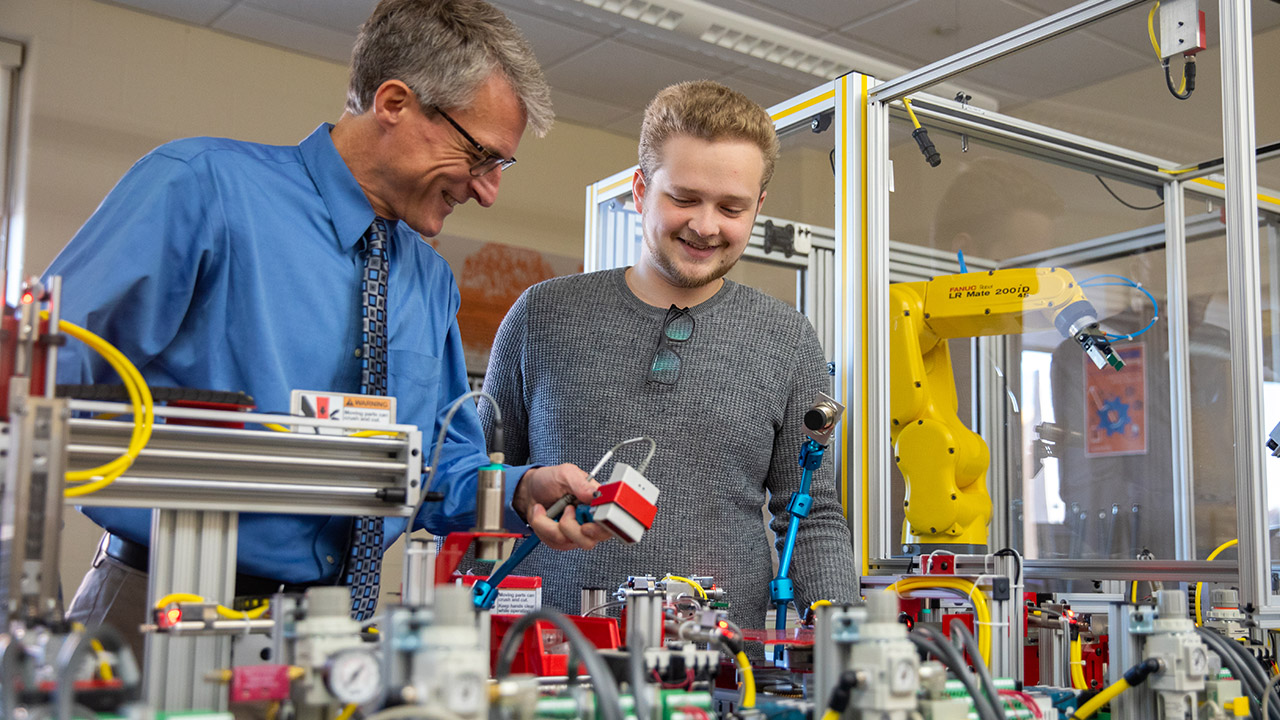


While the Internet of Things continues to expand at a rapid rate, Dr. Molly Gribb, dean of the University of Wisconsin-Platteville College of Engineering, Mathematics and Science, is leading efforts to position UW-Platteville at the forefront of this cutting-edge field. Gribb was recently appointed as a founding board member of the Wisconsin IoT Council, a professional membership-driven organization that promotes Wisconsin and the Midwest as the epicenter for IoT and drives technological advancement in the region.
IoT broadly refers to the interconnectedness of smart devices. This can range from everyday personal use, such as smart phones connecting to home appliances or security systems, to larger scale commercial or industrial applications.
Gribb’s representation on the IoT Council was sought, in part, because of the groundwork UW-Platteville laid last January, when it hosted an IoT curriculum workshop that brought together participants from academia and industry across the state. Funded by a grant from the Wisconsin Economic Development Corporation and the UW System, the workshop resulted in the creation of modules that will be disseminated to faculty across the UW System to help introduce IoT concepts.
“We know companies in Wisconsin, in the tri-state area and across the nation need students who understand this next industrial revolution,” said Gribb. “We need to continually evolve to ensure our students are prepared and ready to work in this space.”
To achieve this, UW-Platteville recently launched an Industrial IoT Pilot Program. Dr. Hal Evensen, professor of engineering physics, has led an interdisciplinary collaboration among five engineering disciplines that has resulted in a new lab in Engineering Hall. The IoT lab consists of a “manufacturing test bed” that includes modern sensors and controls and a robotic arm, as well as an augmented suite of smart, networked sensors that students can implement on the automation test bed. The pending construction of Sesquicentennial Hall – UW-Platteville’s newest engineering building – will allow for expanded capabilities and will include a dedicated space for an IoT test bed.
According to Gribb, UW-Platteville can contribute significantly to the IoT Council’s mission of establishing Wisconsin as a leader in technological advancement and IoT innovation.
“We are so critical to the engineering and technology workforce for Wisconsin, because we educate and graduate more engineers than anyone else in the state, except UW-Madison,” said Gribb. “That role is really important, and because employers come to us for those students who they know can contribute from day one, we want to continue to provide that level of education. We also know our students are more likely to stay and work in Wisconsin than students at other engineering colleges around the state. Our employers tell us that they value being able to hire students who have a strong desire to stay in Wisconsin."
The Wisconsin IoT Council’s inaugural event was held in September. Titled “Challenges and Opportunities: Internet of Things in Wisconsin and the Midwest,” the event outlined the council’s mission. For more information, visit Wisconsin IoT Council.